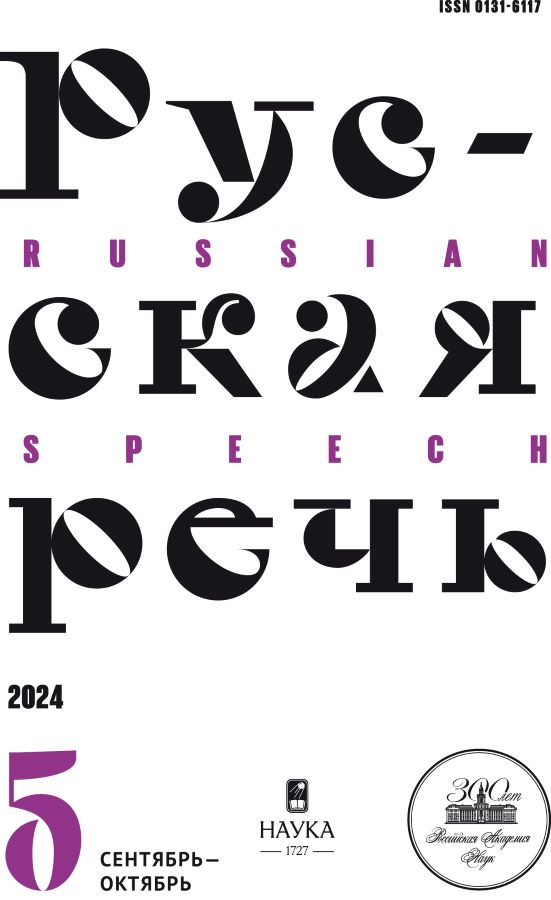Family “passports” of N. V. Gogol's comedy “Marriage”
- Authors: Vinogradov I.A.1
-
Affiliations:
- A. M. Gorky Institute of World Literature of the Russian Academy of Sciences
- Issue: No 5 (2024)
- Pages: 61-71
- Section: The Language of Fiction
- URL: https://freezetech.ru/0131-6117/article/view/652404
- DOI: https://doi.org/10.31857/S0131611724050054
- ID: 652404
Abstract
The article explores the meaning of the surnames in Gogol’s comedy “Marriage”. The origin of the names of the grooms Zhevakin (zhevat’ — chew) and Onuchkin is associated with the folk saying “Chew onuchka.” Regarding the surname Yaichnitsa (yaichnitsa — fried eggs), an episode of the play is drawn in, where the bride warns the groom with the words: “I hope you won’t be angry... At the table there will only be cabbage soup... and drochenoye.” Drochenoye or drachena is a dish very similar to “fried eggs”. According to Gogol’s entry regarding the characterization of the “portly” Yaichnitsa, he can be described as “a spoilt, fat child”.
In addition, an article proposes an explanation of the situational synonymy contained in the play. The “road” surnames of two more characters in the play — Podkolesin (pod — under, koleso — wheel) and Kochkarev (kochka — hummock) — are associated with Gogol’s spiritual aspirations to show “paths and roads... for everyone” to the “lofty and beautiful” in the “dark and confused present”. The analysis of linguistic means allowed to reveal the individual features of Gogol’s poetics as a satirical writer and a denouncer of human “vulgarity”. The article pays close attention to the fact that expressive vocabulary plays an important role in creating the image of the exposed hero. A penetrating sharp word, various “abusive” and derogatory expressions, a popular nickname, a characteristic surname close to an “epigram” make up the artist’s arsenal not only for creating a comic effect. To an even greater extent, negatively colored evaluative means serve to educate contemporaries.
Full Text
About the authors
Igor’ A. Vinogradov
A. M. Gorky Institute of World Literature of the Russian Academy of Sciences
Author for correspondence.
Email: iwinigradow@mail.ru
Russian Federation, Moscow
References
- Filin F. P. (ch. ed.). Slovar' russkikh narodnykh govorov [Dictionary of Russian Folk Dialects]. Iss. 23. Odale-Oset’. Leningrad, Nauka Publ, 1987. 376 p.
- Vinogradov I. A. Letopis' zhizni i tvorchestva N. V. Gogolya (1809–1852). Nauchnoe izdanie: v 7 t. [Chronicle of life and work of N. V. Gogol (1809–1852). Scientific publication: in 7 vols]. Vol. 2. Moscow, IWL RAS Publ., 2017. 672 p.; vol. 7. Moscow, IWL RAS Publ., 2018, 640 p.
- Vinogradov I. A. [Psychologism of N. V. Gogol]. Two centuries of Russian classics = Dva veka russkoi klassiki, 2020, vol. 2, no. 4, pp. 6–73. (In Russ.)
- Vinogradov I. A. [Gogol's “The Government Inspector” as a Comedy-Tragedy. On the Problem of Genre]. Two centuries of Russian classics = Dva veka russkoi klassiki, 2024, vol. 6, no. 1, pp. 74–101. (In Russ.)










